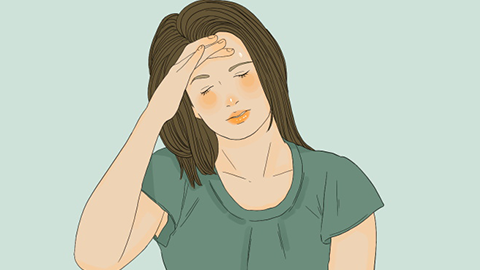What causes sudden fainting and cold sweats?
Generally, sudden fainting with cold sweats may be caused by environmental factors, excessive fatigue, hypoglycemia, anemia, arrhythmia, or other reasons. Symptomatic treatment such as general care or medication is needed. If discomfort occurs, it is recommended to seek medical attention promptly and receive appropriate treatment under a doctor's guidance. Detailed analysis is as follows:

1. Environmental Factors
If someone stays in a warm or enclosed environment for a long time and suddenly moves into a cold or open environment, fainting with cold sweats may occur due to temperature regulation or changes in atmospheric pressure, often accompanied by symptoms such as body tremors and pale skin. It is recommended to adjust the environmental temperature promptly, ensure good ventilation, rest appropriately, and stay hydrated.
2. Excessive Fatigue
Excessive fatigue can reduce the body's energy reserves and lower blood glucose levels, thereby affecting the brain's energy supply and causing fainting. At the same time, excessive fatigue may trigger a stress response in the body, leading to increased sweating, which may be accompanied by symptoms such as physical weakness, dizziness, and palpitations. It is recommended to rest immediately and replenish energy, such as drinking sugary beverages or consuming high-sugar foods.
3. Hypoglycemia
Hypoglycemia mainly occurs due to insufficient food intake or excessive blood sugar reduction. Severely low blood glucose levels can impair the brain's energy supply, resulting in temporary dysfunction of brain activity and fainting. Additionally, hypoglycemia can stimulate the activity of the sympathetic nervous system, causing increased sweating, which may be accompanied by symptoms such as hunger, dizziness, and palpitations. It is recommended to follow medical advice and use medications such as glucose sodium chloride injection, hydrocortisone tablets, and mannitol injection to alleviate symptoms.
4. Anemia
Anemia can result from malnutrition, excessive blood loss, or impaired blood production functions. Anemia reduces the blood's ability to carry oxygen, leading to tissue and organ hypoxia, especially insufficient oxygen supply to the brain, which can easily cause fainting. In response to the hypoxic condition, the body may also react with increased sweating. It is recommended to undergo treatment under a doctor's guidance using medications such as compound ferrous sulfate granules, iron dextran tablets, and iron sucrose injection.
5. Arrhythmia
Abnormal cardiac electrophysiology or cardiovascular diseases may cause arrhythmia, which can interfere with the heart's normal pumping function, leading to insufficient blood supply to the brain and resulting in fainting. At the same time, arrhythmia may activate the sympathetic nervous system, causing increased sweating, as well as symptoms such as palpitations, chest tightness, and shortness of breath. It is recommended to undergo treatment under a doctor's guidance using medications such as verapamil hydrochloride tablets, propafenone hydrochloride tablets, and atropine sulfate injection.
If someone suddenly faints and sweats cold sweat, it is recommended to keep the person calm and avoid moving them unnecessarily to prevent worsening of the discomfort.





